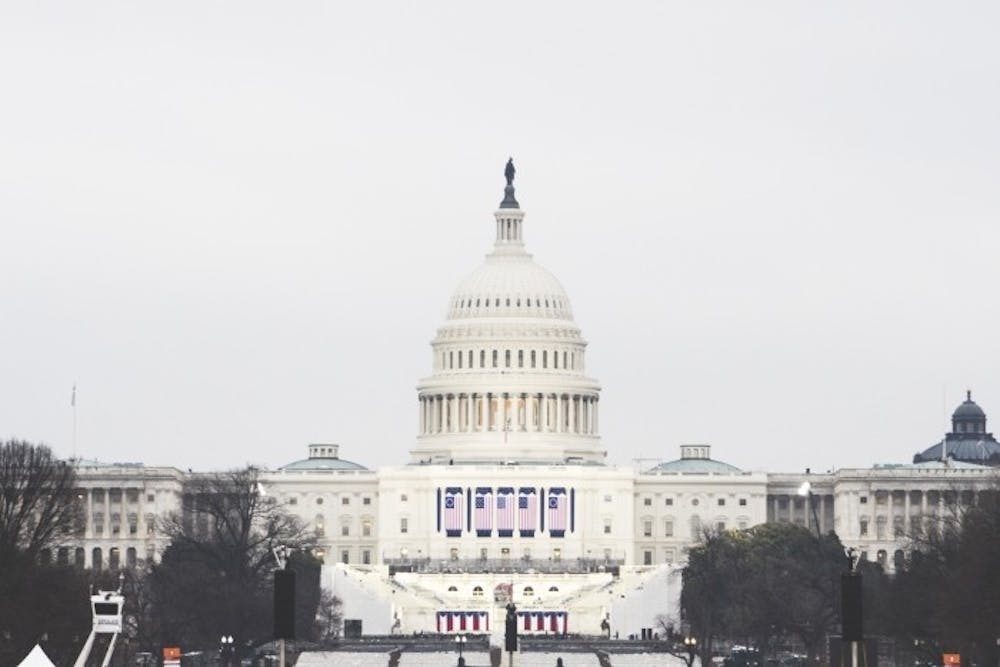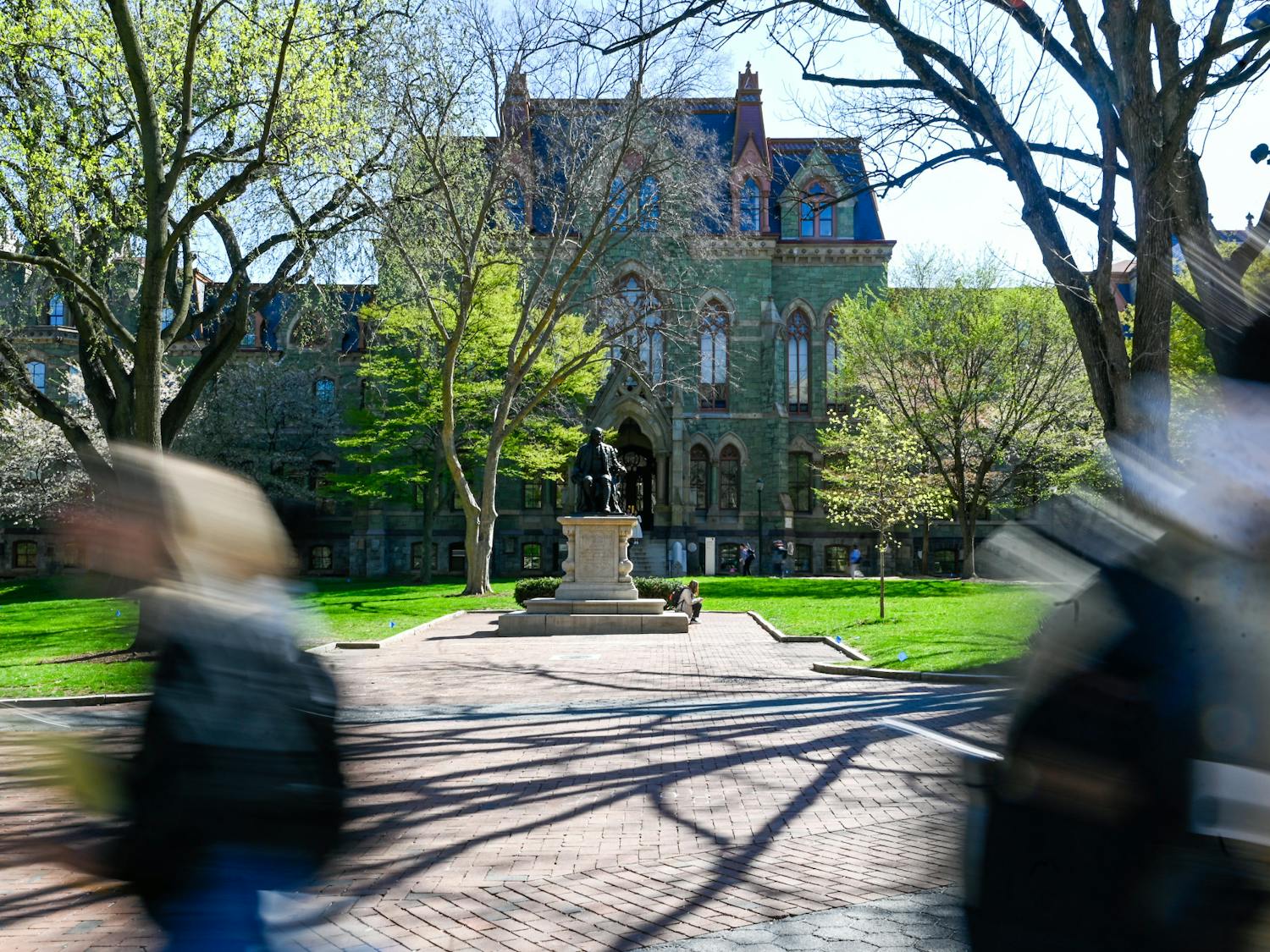With midterm elections fast approaching, Penn’s student political groups are gearing up for the vote by launching registration drives, planning new events, and trying to motivate students to turn out at the polls — even crossing bipartisan lines to do so.
College junior Hayley Boote, president of Penn's non-partisan Government and Politics Association, said the organization would be partnering with Penn Leads to Vote this fall to get students registered across campus on both sides of the aisle.
"We are really excited about [the voter registration effort] and promoting voter engagement at Penn in general," Boote said. "Young people are everything, and the young vote has been something politicians have been trying to earn for decades, it's so important."
According to Politico, Republicans have historically been more motivated than Democrats to turn out in midterm elections. Yet polls this summer have shown Democrats are eroding the Republican voter motivation advantage, as the party hopes to mobilize its base to retake control of the House of Representatives.
Despite the reported trends, the campus political party organizations are nevertheless looking to motivate all students to flock to the polls in November.
College senior Ryan Snyder is president of Penn College Republicans, the major Republican club on campus, and said the club plans to focus on more than just its annual effort to recruit freshmen. Another short-term priority for College Republicans is running a non-partisan voter registration drive, which, he said, will most likely be in conjunction with a number of groups, such as Penn Democrats.

College Republicans (Photo from Ryan Snyder)
The two clubs said they would probably hold a joint registration event on National Voter Registration Day — Sept. 25 — as they have in past years.
RELATED:
Penn alum Conor Lamb wins Democratic House seat after tight special election race
Here's why Penn student groups are already prepping for the midterm election in November
“We are hoping that it can be a good non-partisan effort to get people registered and informed,” Snyder said.
Along with that effort, Penn Dems President and Wharton junior Dylan Milligan said his club registered freshmen to vote outside Hill College House and the Quad during New Student Orientation, continuing past voter registration efforts.
Milligan predicted that with the work of Penn Leads to Vote and the Office of Government and Community Affairs, around 2,000 new students could be registered to vote by mid-September. According to Milligan, there are around 1,500 domestic freshmen who could elect to vote in Pennsylvania, not including transfer students and new graduate students.
Beyond registration, both major political party groups will be heavily involved in campaigning, canvassing, and organizing for congressional candidates in Pennsylvania. Currently in the state, Republicans hold 10 seats, Democrats control six, and two are vacant.
Milligan said Penn Dems is particularly targeting seats in Pennsylvania's 1st District and 7th District, which encompass Bucks County and Lehigh Valley respectively, and the group has canvassing trips planned to those spots every week.

Penn Democrats (Photo from Dylan Milligan)
On the Republican side of the ballot, Snyder identified Republican gubernatorial candidate Scott Wagner, Rep. Brian Fitzpatrick (R-Pa.), and senatorial candidate Rep. Lou Barletta (R-Pa.) as the major figures the club is supporting.
College Republicans plans to start tabling and canvassing in support of Fitzpatrick in October, who Snyder described as a knowledgeable, even-keeled voice in the House. Fitzpatrick came to speak to the club twice last spring, and Snyder said it was imperative he wins reelection in what could become an expensive and hotly-contested race.
Closer to campus, the political organizations hope that this year can be a successful one filled with student participation in the elections.
Milligan stressed the importance of the student vote, referencing the razor-thin margin with which Conor Lamb won his March election for Pennsylvania's 18th District.
"If we can generate presidential-year level enthusiasm on Penn’s campus, and turn out a thousand more votes than we regularly would, that could very well swing the election for [Sen. Bob] Casey [(D-Pa.)]," Milligan said.
Snyder said College Republicans was still finalizing concrete plans, but the current emphasis is on educating students and promoting civil discourse. He added that the club has not confirmed any big speaker events for the fall, but said he was looking to keep up the strong slate of guests from last year, which included Wagner and Fitzpatrick.
Penn's GPA has also been active in the opening weeks of school, hosting an NSO event which focused on the changing nature of democracy and planning a Sept. 6 Penn Political Union debate on abortion policy. Boote stressed the importance of the bipartisan nature of GPA amid the current nationally polarized political atmosphere — and it's a sentiment that Penn's two major political groups seem to echo.
"We plan to host joint events and get people excited about the fact that polarization isn’t the only way," Snyder said. "We want to get people excited about politics, because a lot of young people seem to be turned off by the current climate."









